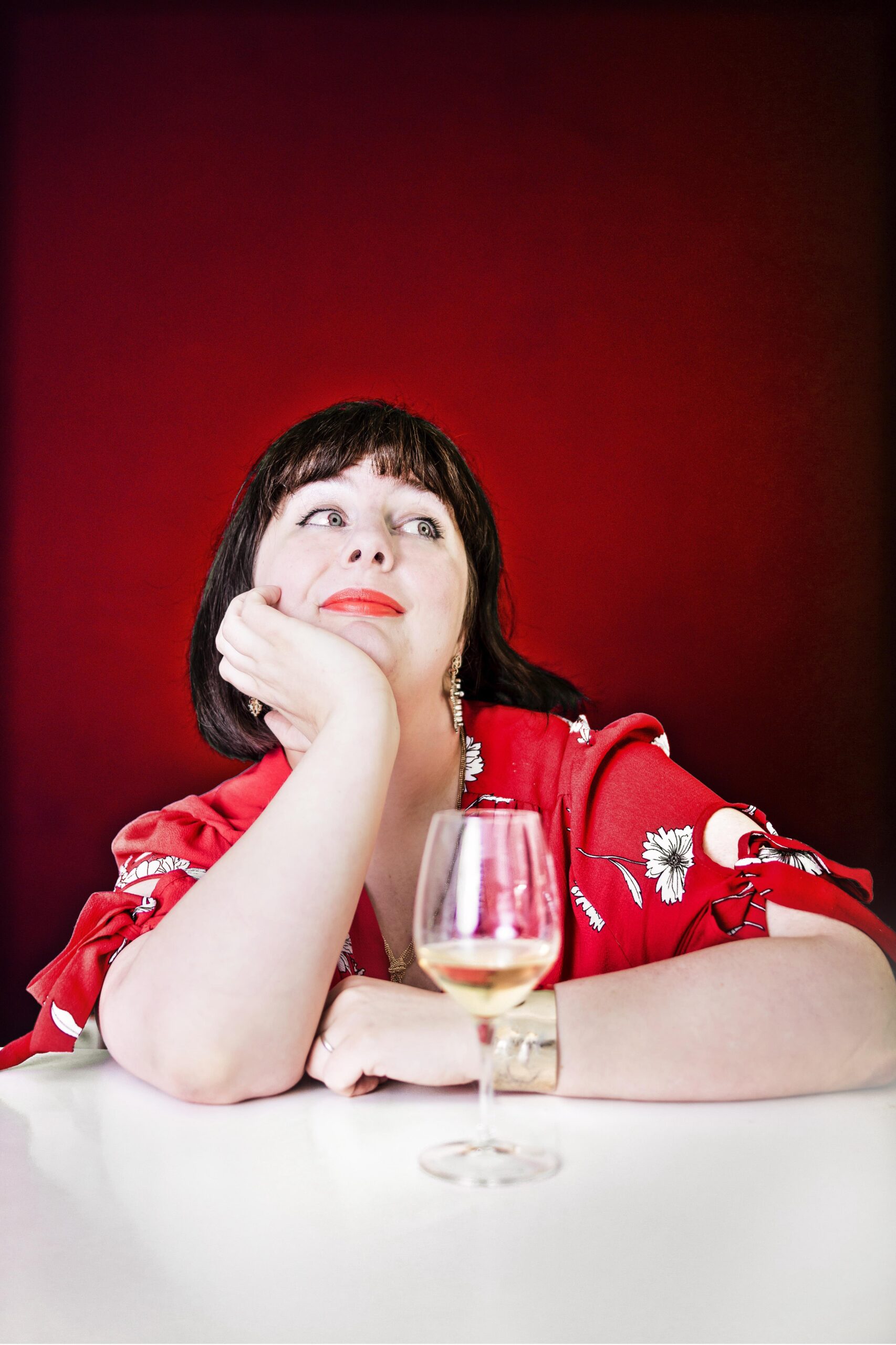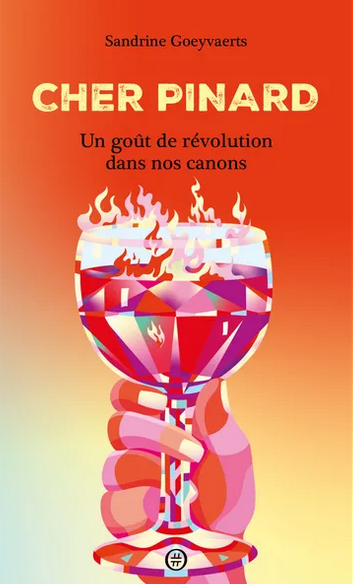In her sixth and latest book, Cher pinard, the wine merchant, sommelier and journalist explores the taste of wine, from its origins to current trends, via its language and its experts… A fascinating read.
You wrote it yourself: there have probably never been so many tools and books to accompany wine tasting. So why a new book on the subject? What is its starting point?
For several years now, I’ve been looking at wine from a political angle. There are so many different histories, so many different cultures… so many excuses to examine, through its prism, what’s going on in our societies. Cher pinard is part of this long-term effort. After Vigneronnes, which looked at the issue of women in the wine world, and Manifeste pour un vin inclusif, which looked at the highly codified language of wine, exploring taste seemed to me a logical progression. I was particularly drawn to the dichotomy between what is declared to be loved and what is actually drunk…
The first part of this book looks at the origins of taste. In this field, against all expectations, there are many parameters to take into account…
Yes, it is generally accepted that taste is very natural and instinctive. A completely personal creation ex nihilo. The expressions ‘All tastes are in nature’ or ‘To each his own’ bear witness to this. However, context, education, socio-cultural background, environment, culture… all influence the construction of taste, from birth, even in utero, and then throughout life.
Then there is the difficulty of expressing the taste of wine, of sharing it, of making it intelligible to as many people as possible…
There’s a whole vocabulary associated with this world. Words that sometimes make expressing taste and tasting difficult for everyone. And while professionals are quick to pick up on the jargon, for those with a limited knowledge of wine, learning the language can be complex. Intimidating even. And the fact that it remains so is not entirely insignificant…
And what can we say when language and cultural barriers get in the way?
Language structures are not at all the same from one country to another. Where English wine reviews are more analytical, their French counterparts are more poetic. References also change from one culture to another. I remember interviewing an Ecuadorian woman who, while studying in Quebec, had heard for the first time about the aromas of green apple, cooked apple… She confessed to me that she was lost: these notes were completely unknown to her, to the point of buying different varieties of this fruit, to taste them raw and then cooked and thus familiarise herself with their flavours. Not only did she have to learn a new language, but also a whole culture of taste.
Between these difficulties in objectively analysing taste and conveying it in an understandable way, what about sommeliers and critics? How important are they?
It’s important to bear in mind that these experts speak from their own point of view, based on their own cultural and social experience. Their taste is highly subjective, and by no means good. I’m fighting against this idea, this notion of absolute value. There’s room for very different wines and just as many different paths. The experts are there to invite us to follow them… or not. They are not messiahs. That’s why it’s so useful to get in touch with people who have similar experiences to our own and who can help us to understand our tastes better. I’m thinking in particular of wine merchants. People with whom you can have real conversations…
Is it in these exchanges that you find your pleasure?
I love it. That’s why I love being a wine merchant so much. It has a very theatrical side. By putting people in touch with wine, we’re not just talking about taste, but also about the winemakers behind the wines. We’re re-enacting their story… And then there’s a real element of psychology. In the moment, we have to be able to sketch out a personality, expectations…, by talking about wine of course, but not just wine. Talking about music, for example, can help. So much so that, through our discussions, I’m starting to get to know some of my customers very well. I know what they like to eat, with whom, what they listen to… It’s a very cool job for that.
Throughout Cher pinard, your tone is certainly rigorous and educational, but also very funny and inclusive. That’s a change…
That’s the way I’ve done it since I started. I’m not interested in talking like a book, reproducing the model of wine education I received during my studies, that of all those old oenology professors who mumble about appellations with their noses in their books. You can put more naturalness into it. With its cultural and historical weight, the world of wine can sometimes be so hermetic that humour can be used to get messages across, defuse tensions and challenge old reflexes and clichés, all the while demonstrating – and I insist on this – professionalism. When I tackle the question of natural wines, for example, I’m careful to be as rigorous as possible. There are so many biased views on the subject. But that doesn’t mean I can’t be funny. And that’s a good thing! Otherwise, life would be really boring.
After dissecting the taste of wine, your book looks at current trends in the sector: how and what do people drink today?
The way we consume wine has changed a great deal over the last ten, fifteen and twenty years. As a wine merchant, I can’t help but notice this. More and more people come to see me for a glass to drink in front of a Netflix series or film, rather than for the bottle that will accompany their Sunday leg of lamb or the one that will age in their cellar. These days, people buy wines to please themselves and to drink quickly. What’s more, more and more young people are interested in wine, and more specifically in what lies behind it: here, a beautiful story; there, a greater respect for nature; further afield, a genuine concern for inclusion and diversity… A real curiosity, then, which goes hand in hand with a more volatile consumption, less wine and more drinks with little or no alcohol: co-fermentations, distillations with maceration, infusions…
There are many alternatives to wine, and you devote the last section of Cher pinard to them…
Talking about drinking that could be more sober and, beyond that, about alcoholism systematically creates tension, even an epidermal reaction. The ‘hygienists’ take the biscuit. “What kind of society is this, where nothing more can be done?” But if the wine world is to survive and open up, we have to accept this message: yes, non-alcoholic or low-alcohol drinks can coexist with wine! Just as natural beverages can coexist with conventional ones, just as the big champagne brands can coexist with small estates… It’s a global ecosystem. If we don’t integrate it, we won’t make any progress. Quite the opposite, in fact.
Contactez nous


